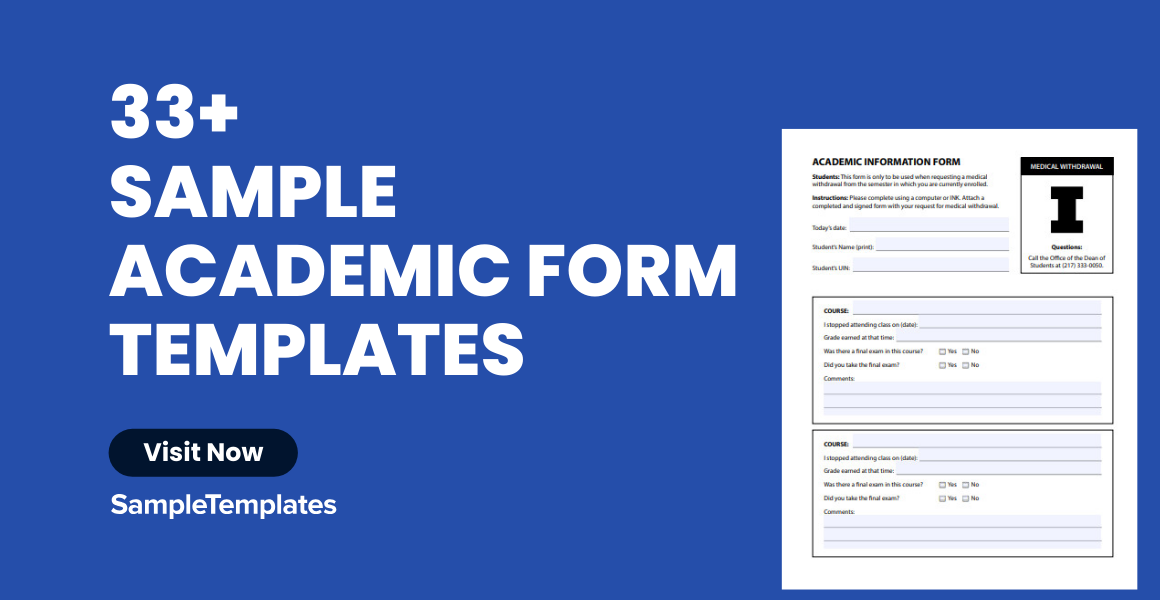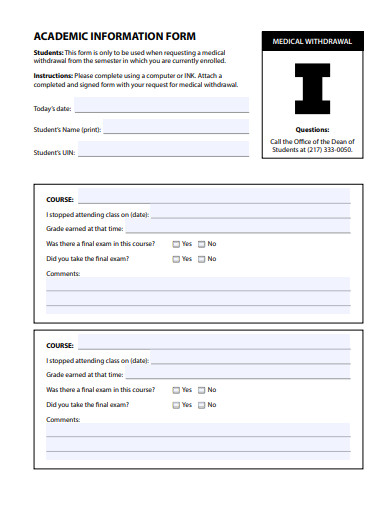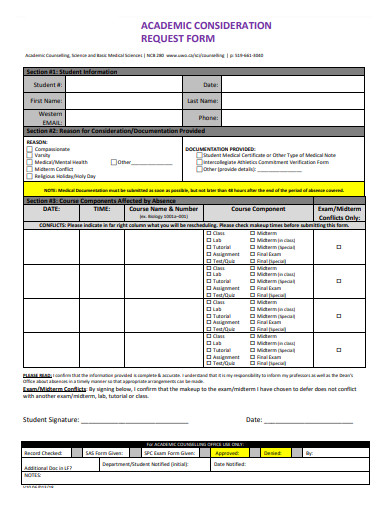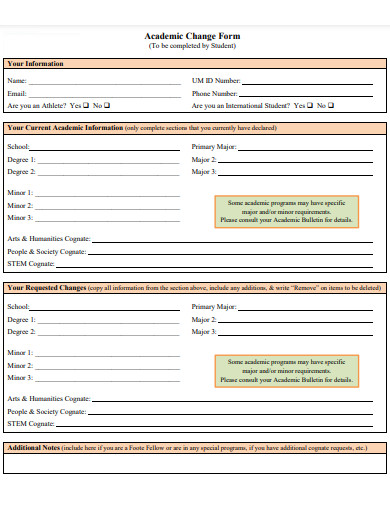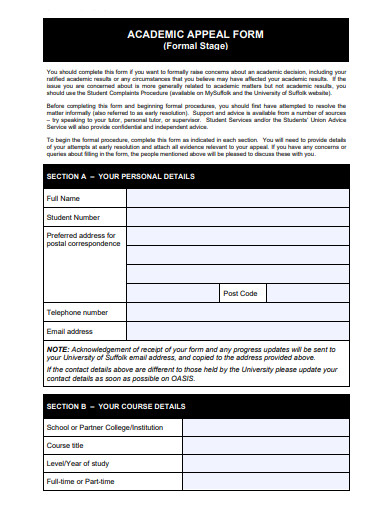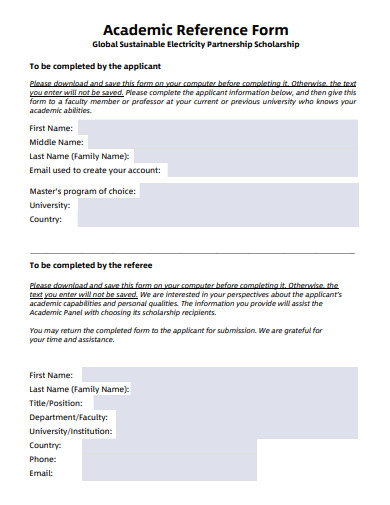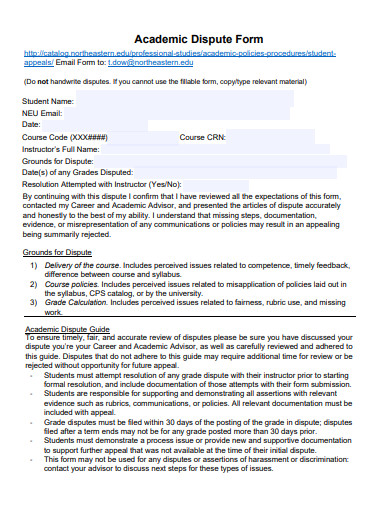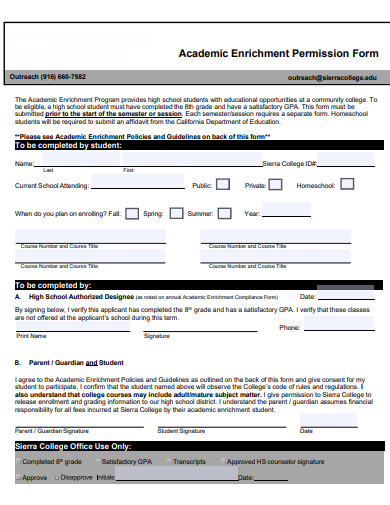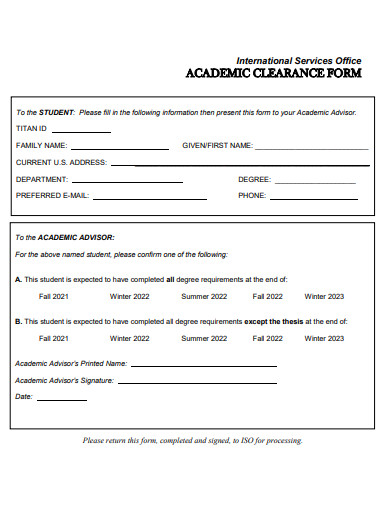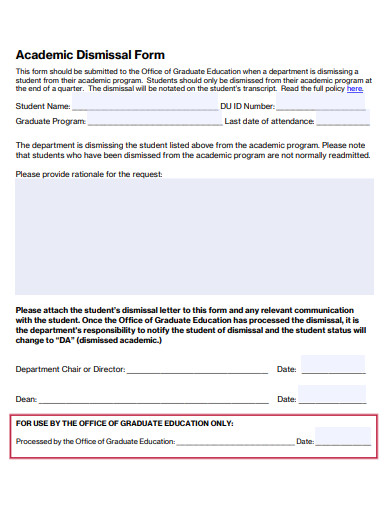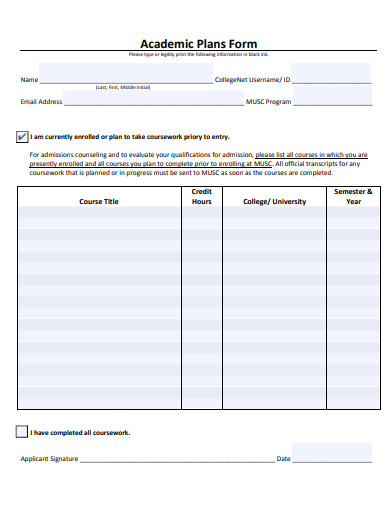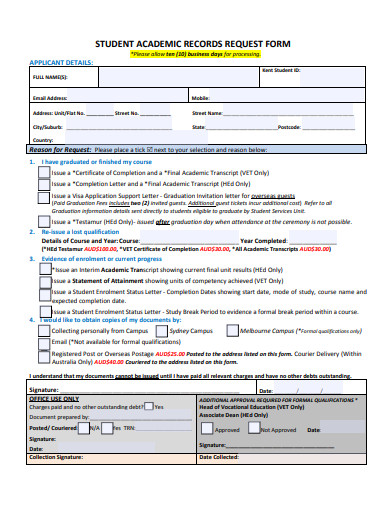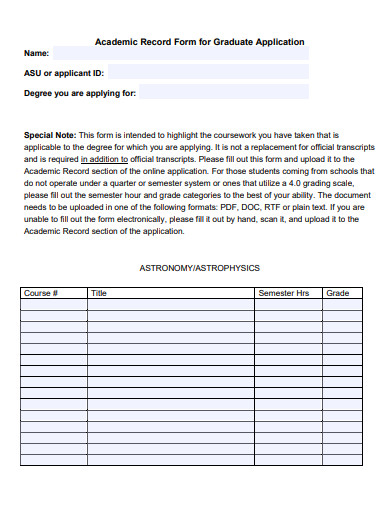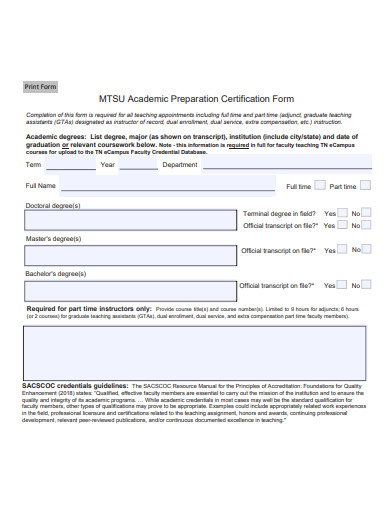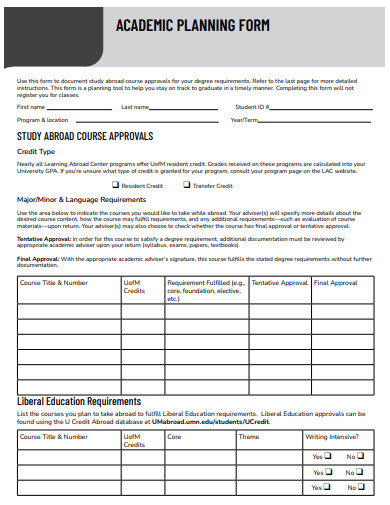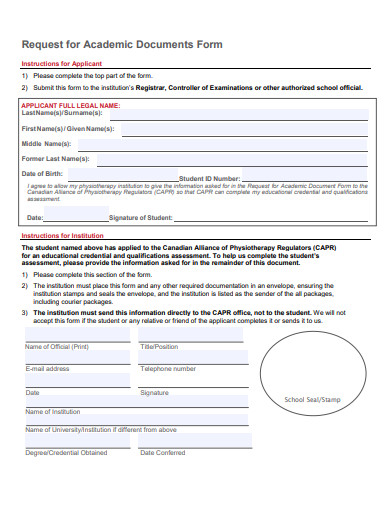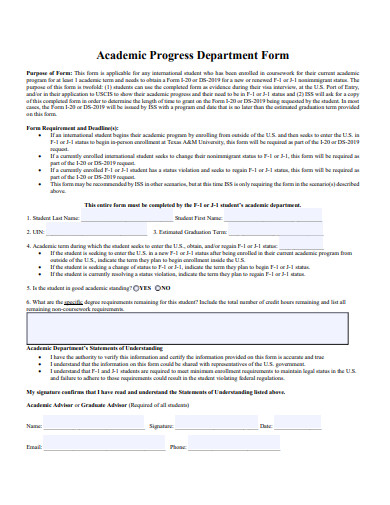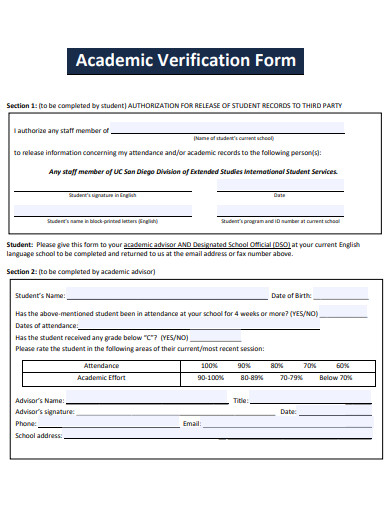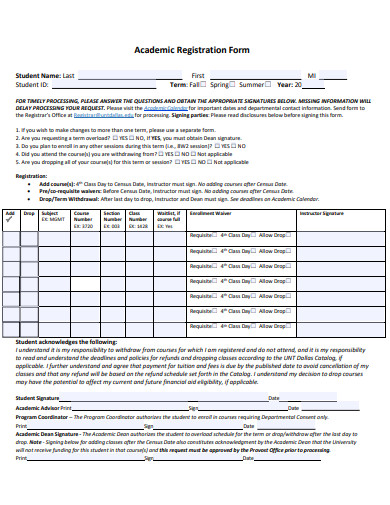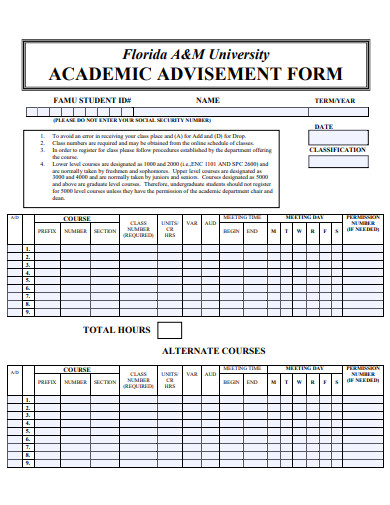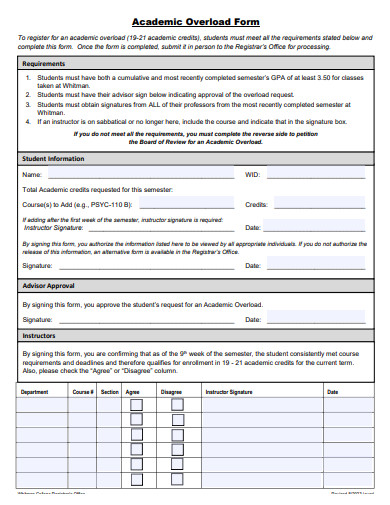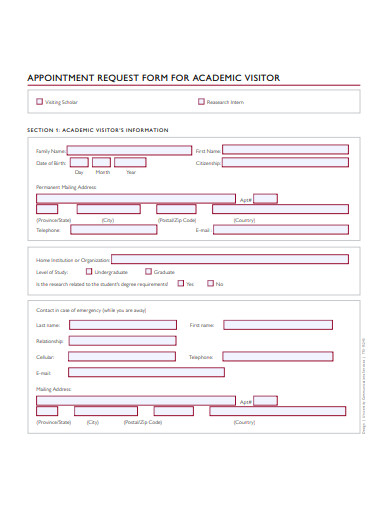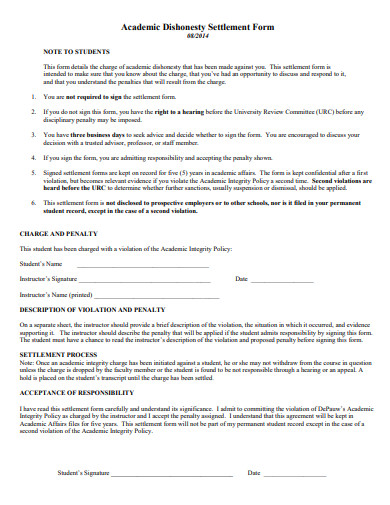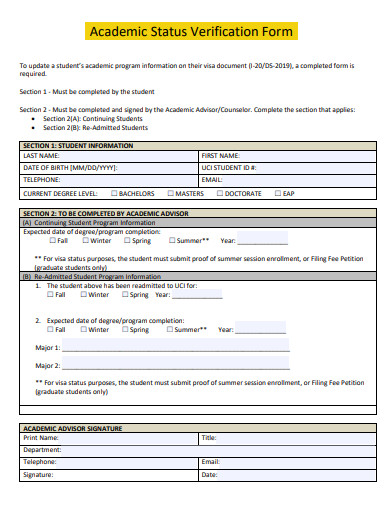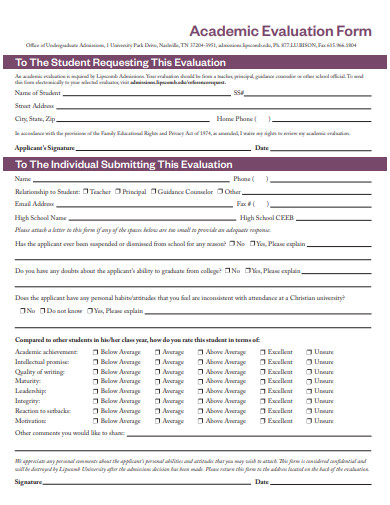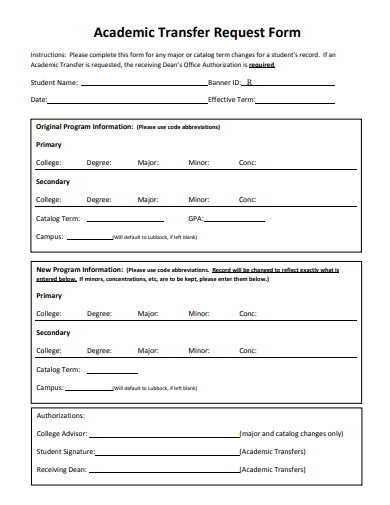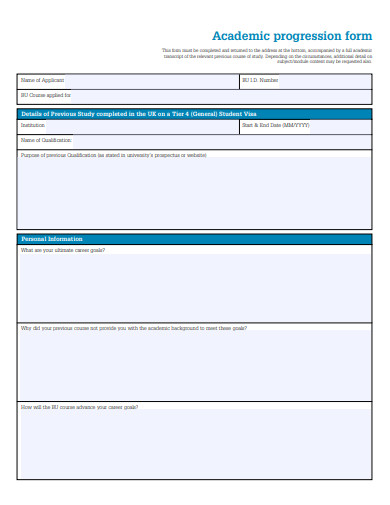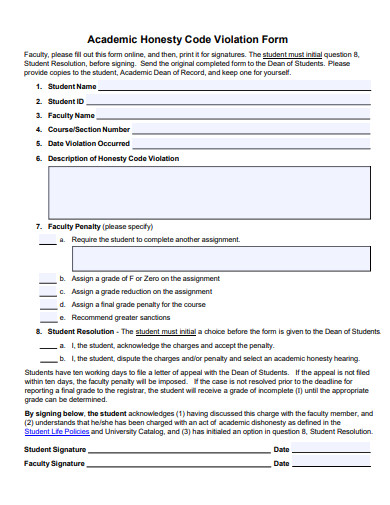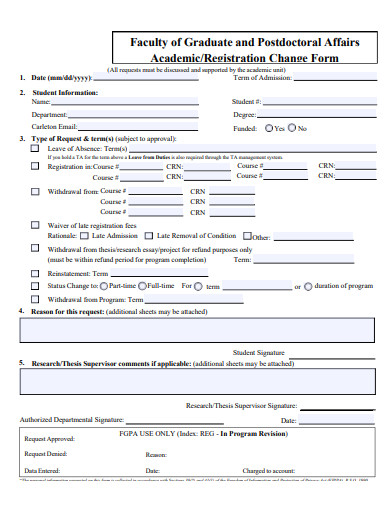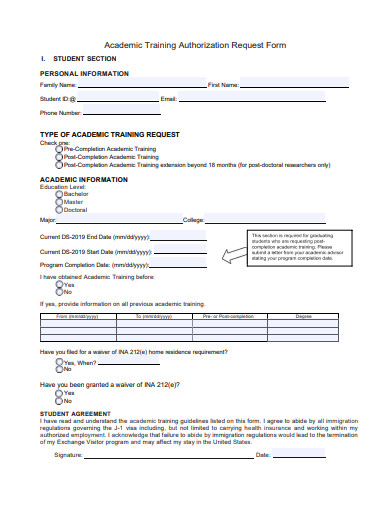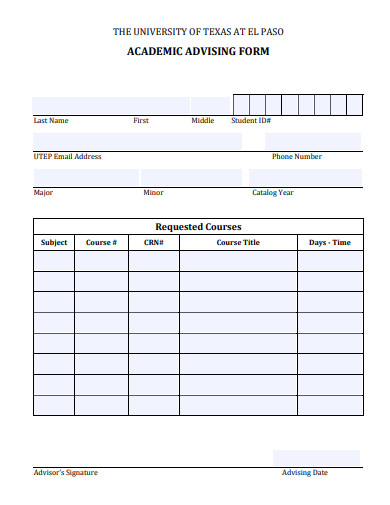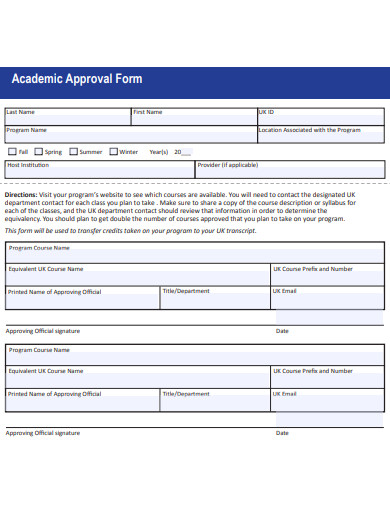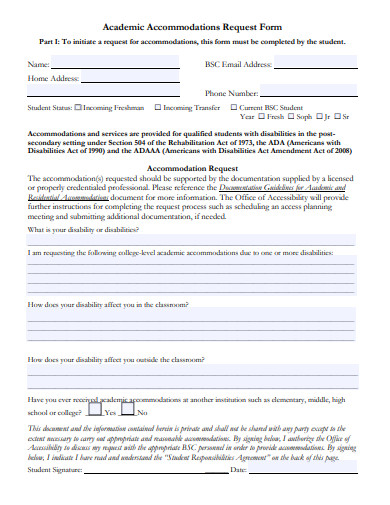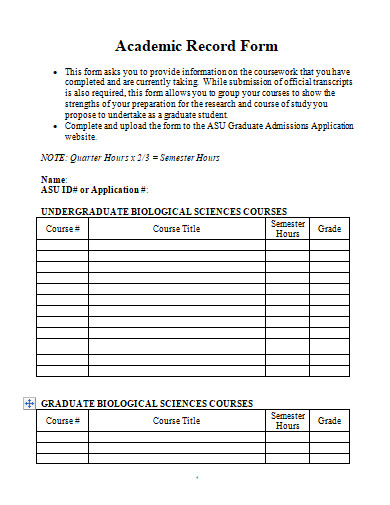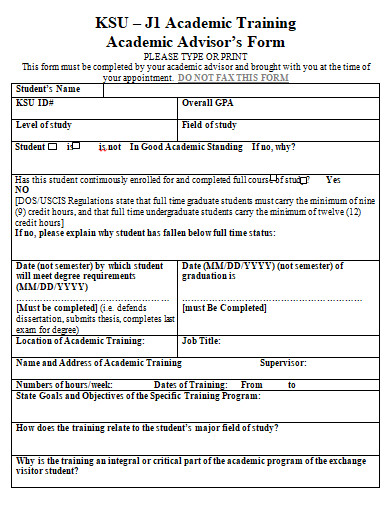Ready to take a pivotal step in your academic venture? Our Education Form is more than just a document; it’s a portal to a myriad of scholarly opportunities and aspirations. Meticulously crafted to capture every essential detail, this form embodies the essence of academic and educational excellence. With its intuitive design and structured layout, our Education Form ensures that the world of academic progression is seamlessly navigated and every educational milestone is within reach.
33+ Academic Form Samples
1. Academic Information Form Template
2. Academic Consideration Request Form Template
3. Academic Change Form Template
4. Academic Appeal Form Template
5. Academic Reference Form Template
6. Academic Dispute Form Template
7. Academic Enrichment Permission Form Template
8. Academic Clearance Form Template
9. Academic Dismissal Form Template
10. Academic Plans Form Template
11. Student Academic Records Request Form Template
12. Academic Record Form for Graduate Application Template
What Are Academic Forms?
At the intersection of administrative efficiency and academic processes lie academic forms. These structured documents are tailored tools designed specifically to cater to the multifaceted requirements of educational institutions, research organizations, and scholarly endeavors.
A Glimpse into Various Academic Forms
Across the academic landscape, one can identify a multitude of forms, each with a distinct purpose:
- Enrollment and Admission Forms: These forms are the initial point of interaction for aspiring students, capturing essential details like personal information, academic history, and references to determine eligibility for a course or institution.
- Thesis or Dissertation Submission Forms: Designed for advanced scholars, these forms accompany academic research submissions, outlining key details like research topic, methodology, and supervisors’ names.
- Examination and Assessment Forms: Whether it’s registering for an exam or seeking special accommodations due to unique needs, these forms streamline the evaluation process.
- Course Feedback Forms: Aimed at continuous improvement, these are used to gather students’ perspectives on courses, professors, or the overall academic experience.
- Grant and Scholarship Applications: These forms facilitate the allocation of financial aids and research grants, ensuring deserving candidates receive the necessary support.
Significance of a Well-Designed Academic Form
The effectiveness of an academic form can be gauged by a few benchmark characteristics:
- Comprehensibility: It should be easy to understand, devoid of jargon unless absolutely necessary, ensuring inclusivity.
- Consistency: A uniform format, with logical sequencing of sections, enhances the user experience and reduces errors.
- Security and Confidentiality: With many forms handling sensitive data, they must be compliant with data protection standards.
- Flexibility: With the evolving nature of academia, forms should allow for periodic updates without losing their fundamental structure.
What is the Purpose of Writing in Academic Form?
The realm of academia is one that thrives on precision, rigor, and structure. Writing in an academic form serves as the bedrock of scholarly communication, ensuring that ideas, theories, and findings are conveyed with clarity and authority.
Setting the Gold Standard
The credibility of academic work is often anchored in its adherence to established writing norms. Academic form writing, with its emphasis on thorough research, source citation, and objective analysis, lends gravitas to the content, making it trustworthy and peer-review ready.
Facilitating Analytical Discourse
The structured nature of academic writing promotes in-depth analysis and critical thinking. By presenting arguments coherently, writers can dissect complex topics, encouraging readers to engage in analytical discourse.
A Universal Language
Academic form writing acts as a universal language, bridging geographical and cultural divides. It ensures that a researcher in one part of the world can seamlessly communicate their findings to peers globally, fostering a collaborative spirit in the global academic community.
Laying the Groundwork for Future Research
Through comprehensive literature reviews, proper citation, and an organized presentation of findings, academic writing offers a foundation for future research. Subsequent scholars can build upon, refute, or pivot from established works, driving the relentless wheel of academic progression.
In summation, while academic forms streamline administrative and research processes, writing in an academic form ensures that the content produced is of the highest quality, fostering understanding, debate, and progress in the academic sphere.
13. Academic Preparation Certification Form Template
14. Academic Planning Form Template
15. Request for Academic Documents Form Template
16. Academic Progress Department Form Template
17. Academic Verification Form Template
18. Academic Registration Form Template
19. Academic Advisement Form Template
20. Academic Overload Form Template
21. Academic Visitor Appointment Request Form Template
22. Academic Dishonesty Settlement Form Template
23. Academic Status Verification Form Template
24. Academic Evaluation Form Template
25. Academic Transfer Request Form Template
26. Academic Progression Form Template
27. Academic Honesty Code Violation Form Template
28. Academic Registration Change Form Template
29. Academic Training Authorization Request Form Template
30. Academic Advising Form Template
31. Academic Approval Form Template
32. Academic Accommodations Request Form Template
33. Academic Record Form Template
34. Academic Advisors Form Template
How to Submit Academic Forms
Before delving into the submission process, it’s pivotal to recognize the significance of academic forms. These documents act as essential conduits for various academic activities, from enrollment and research submissions to examinations and feedback form. Proper submission ensures your academic journey remains on track and devoid of unnecessary hiccups.
Step-by-Step Guide to Submitting Academic Forms
1. Acquaint Yourself with the Form:
Before filling it out, thoroughly read through the academic form to familiarize yourself with all its sections. Understand the nature of the information required, and gather any necessary documentation or data you might need.
2. Choose the Right Mode:
In today’s digital age, many institutions offer both online and offline submission modes. Depending on your comfort level and the institution’s preference, select the appropriate mode. Online forms might require you to create a student portal account or use a specific platform, while offline forms may necessitate a visit to the institution’s administrative office.
3. Fill Out the Form with Precision:
Ensure that you provide accurate and comprehensive information. Use black or blue ink for offline forms, and write legibly. For online submissions, ensure stable internet connectivity. Avoid using slang or abbreviations unless they’re universally recognized in academic circles.
4. Attach Necessary Documents:
Many academic forms require supplementary documents, such as transcripts, recommendation letters, or research abstracts. Ensure these documents adhere to specified formats and sizes. It’s always a good practice to keep copies of all attachments for your records.
5. Review Before Submission:
Before hitting the ‘submit’ button or sealing the envelope, double-check all details. Look for any errors, omissions, or inconsistencies. Remember, a small oversight can lead to processing delays or even rejection.
6. Adhere to Deadlines:
Academic institutions often have strict deadlines for form submissions, especially for admissions, examinations, or research presentations. Mark these dates on your calendar and aim to submit well in advance to account for any unforeseen challenges.
7. Obtain Submission Confirmation:
For online submissions, you’ll often receive a confirmation email or notification. Keep this as proof of your timely submission. For offline forms, it’s advisable to get a receipt or acknowledgment slip.
8. Stay Updated:
Post submission, regularly check your emails, student portal, or communication channels specified by the institution. This will ensure you’re informed about the form’s status, any further steps needed, or any queries that the institution might have.
9. Seek Assistance if Needed:
If you encounter challenges or uncertainties, don’t hesitate to contact the institution’s administrative or support department. They can provide clarity or guide you through the submission process.
10. Stay Calm and Patient:
Once you’ve done your part, remain patient. Depending on the nature of the form, processing times can vary. Trust in the system and understand that academic institutions receive numerous forms and manage them with diligence.
In conclusion, the submission of academic forms is a structured process requiring attention to detail, timely action, and patience. With methodical steps and a proactive approach, you can ensure your academic endeavors remain seamless and efficient.
Related Posts
Sample Sworn Affidavit Forms
Vehicle Inspection Forms Samples & Templates
Sample Employee Advance Forms
Sample Child Travel Consent Forms
Sample Testimonial Request Forms
Sample Employee Details Forms
Sample Divorce Forms
Sample Attestation Forms
Employee Performance Appraisal Form Templates
FREE 9+ Sample Presentation Evaluation Forms in MS Word
FREE 10+ School Admission Form Samples & Templates in MS Word | PDF
FREE 30+ Patient Consent Form Samples in PDF | MS Word
FREE 10+ Sample Sign Off Form Templates in PDF | MS Word
FREE 11+ Sample Medical Consultation Forms in PDF | MS Word
FREE 8+ Sample Donation Forms in PDF | MS Word
